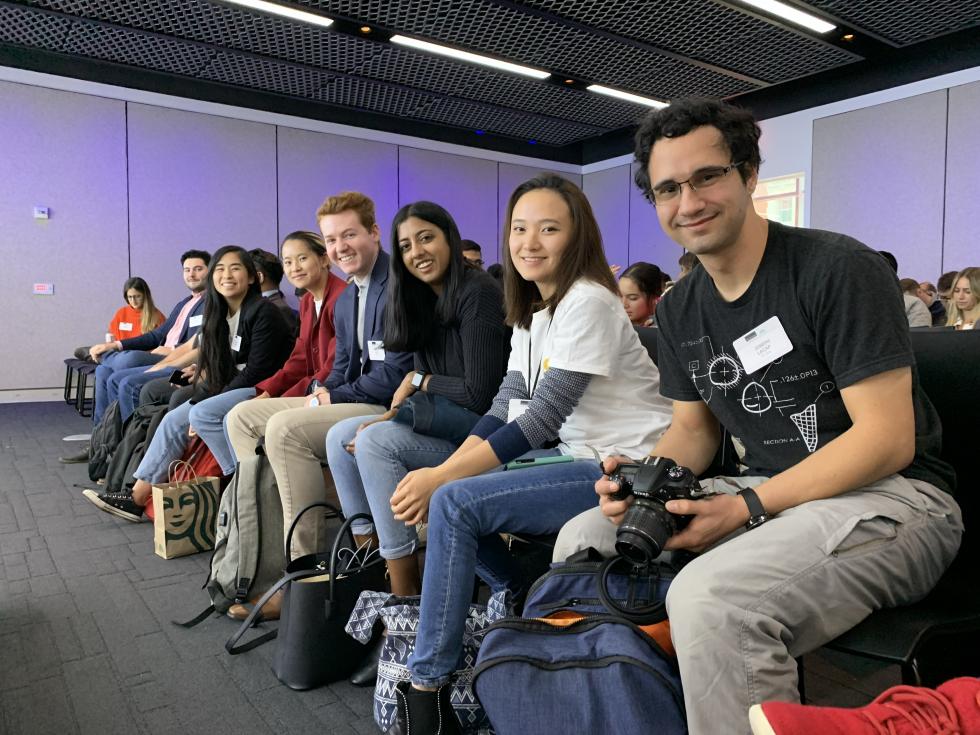
Lessons Learned: Watching Top Student Teams from Across the U.S. Pitch
Watching fellow students pitch at the LaunchPad Propel conference was an incredibly inspiring experience. As a student entrepreneur myself, I understand how much work and time goes into making a startup successful.
Because of the nature of English Khadavu, my nonprofit organization based in India, its progress can sometimes move very slowly. This made it especially exciting to hear the fast-paced stories behind the initial successes of other students’ companies.
Student entrepreneurs from more than 20 campuses across the U.S. and Ireland attended Propel, where we heard from world-class speakers from the Blackstone and Techstars networks, got valuable feedback at speed mentoring sessions.
But the highlight was watching one student team from each participating university pitch for a chance to win $20,000 in cash and prizes to invest in their business. These ranged from teams that were developing online platforms to food products to even medical equipment.

The chosen team from UC Davis was RePurpose Energy, represented at the conference by Ryan Barr and Joseph Lacap. While you can read about Ryan’s experience pitching at the competition in a separate blog post, I learned a lot from watching them practice, pitch and answer questions from the judges.
Here are the main lessons I learned about what makes an effective pitch:
Start with a personal anecdote
Many of the speakers tied their startups to a personal story in their lives, which was really effective in making the audience understand why they were so passionate about what they were doing, and trust in their expertise.

Show metrics and momentum
One of the startups was mildly interesting through the whole pitch, but it wasn’t until the last sentence—when the founder described the huge number of sales that she had made—that her company really stuck out to me (and to the judges as well). In general this is a great way to show your audience that people are interested in your product, and so they should be to.
Use demonstrations to explain complicated concepts
Another of the startups was developing a very technical product in the medical field, which most of the audience in the conference did not have a background in. Because of this, they explained their product really effectively using a story and demonstration. This also provides a refreshing change of pace for a pitch competition where most other competitors are just speaking about their business.
Confidence = Expertise
Above all, the most impressive skill I noticed with those who pitched was their level of confidence and expertise in their startup.
Each pitch was clearly well practiced and each finalist had quick and educated responses to the judges’ questions, which made the founders seem like true experts in their fields.
I learned a lot from watching other students pitch at Blackstone Launchpad Powered by Techstars and I am looking forward to applying these lessons to presentations I give in the future.
****
Kausi Raman is the student lead at the UC Davis Institute for Innovation and Entrepreneurship. She was a student ambassador from October 2018 to September 2019.